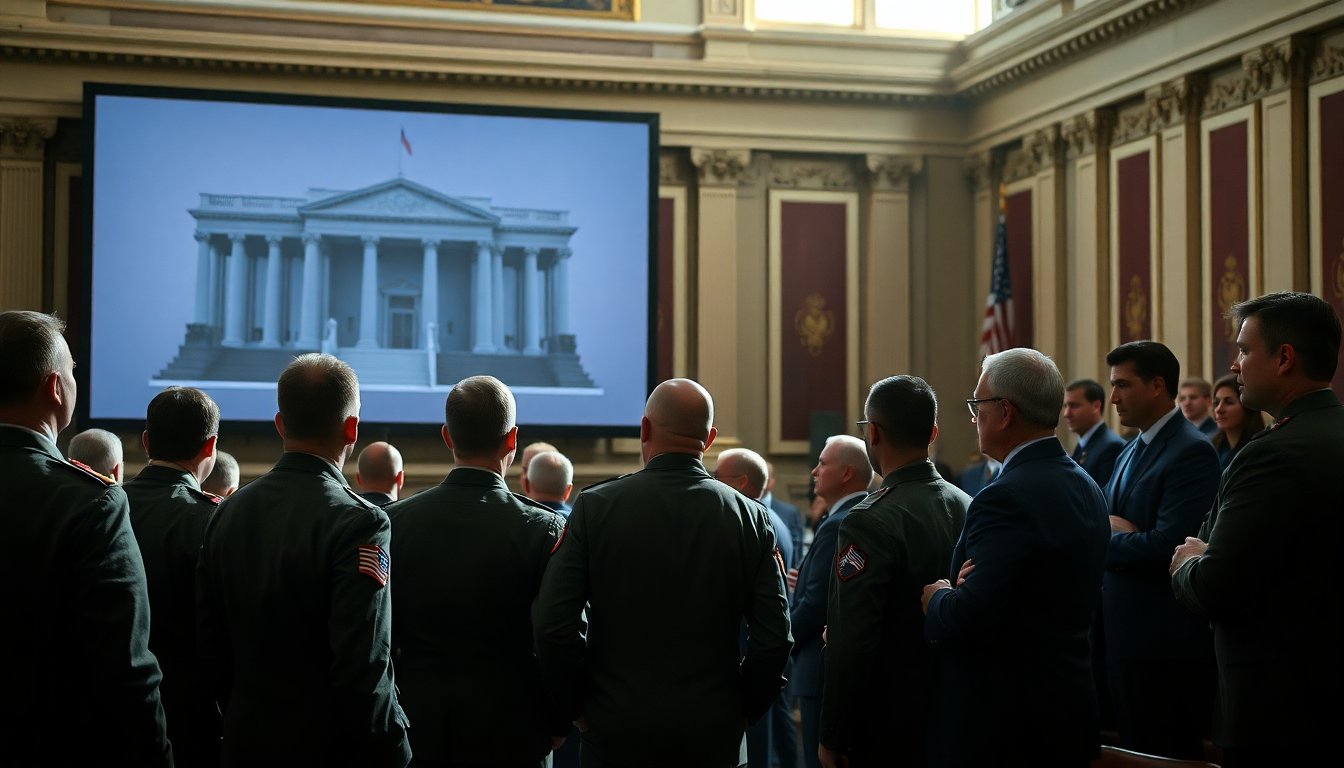Table of Contents
In a significant development reflecting the ongoing political tensions in the United States, former President Donald Trump has vehemently criticized a group of Democratic lawmakers. This group, which includes several military veterans, recently released a video urging members of the armed forces to resist unlawful orders. Trump’s response has been to accuse them of seditious behavior, asserting that such statements pose a threat to national security.
Democrats’ video and its implications
The recent video released by Senator Elissa Slotkin of Michigan showcases a coalition of six Democratic lawmakers, including former military personnel such as Senators Mark Kelly and Representatives Chris Deluzio and Jason Crow. In the video, they assert that military members have the right to refuse orders that violate the law. The lawmakers underscore the importance of upholding the U.S. Constitution and remind service members of their obligation to act in accordance with the law.
Political responses
The recent call for adherence to legal principles has elicited strong criticism from former President Donald Trump. He took to social media to label these actions as treasonous and suggested that such behavior could lead to severe penalties, including execution. Trump’s rhetoric has escalated, asserting that statements made by Democratic lawmakers are not only dangerous but also undermine the integrity of the military. He remarked, “This is really bad and dangerous to our country.”
In response, White House Press Secretary Karoline Leavitt sought to clarify Trump’s comments. She stated that all military orders are lawful and emphasized that any disobedience could jeopardize national security. Additionally, Senator Lindsey Graham, a Republican from South Carolina and a former military lawyer, expressed his dissatisfaction with the video, calling on Democrats to specify which orders they view as illegal.
Context of military operations
The recent tensions arise from a series of military strikes executed by the United States against suspected drug traffickers operating in international waters. These operations, which began in early September, have led to multiple casualties. Critics are raising questions about the legality and justification of these actions. In a recent video, Democratic lawmakers did not cite specific military orders but expressed ongoing concerns about the potential for unlawful directives within military operations.
Historical perspective on military orders
The issue of lawful orders in military contexts has sparked debate throughout history. While the principle that soldiers must refuse illegal orders is well established, identifying what constitutes an illegal order can be complex. A significant case illustrating this challenge is the My Lai Massacre during the Vietnam War. Army Lieutenant William Calley faced accountability for his actions against civilians, despite his claims of merely following orders. This incident highlights the moral and legal responsibilities that military personnel must navigate.
Critics of the current administration have expressed concerns over the lack of transparency regarding recent military operations. They question why certain individuals involved were not detained for further investigation. The complexities of military engagements raise significant issues about the nature of lawful orders, an ongoing topic of heated debate.
International implications and reactions
The military strikes have attracted international scrutiny. The United Nations and various foreign officials have voiced concerns about potential violations of international law stemming from these actions. While the Trump administration has defended its operations as essential for combating drug trafficking, experts contend that most fentanyl-related deaths in the U.S. do not come from Venezuelan sources, contrary to the administration’s claims.
Political implications of military orders
Tensions are rising as the political ramifications of former President Trump’s comments may extend beyond immediate discussions surrounding military orders. The ongoing conflict between Democratic lawmakers, who advocate for constitutional adherence, and the Trump administration’s approach to military engagement highlights a broader struggle over authority and accountability in governance.
The significance of lawful conduct
The clash over military orders and the definition of lawful conduct marks a critical moment in American politics. The dialogue initiated by Democratic lawmakers reflects their commitment to constitutional principles and raises essential questions about the responsibilities of military personnel regarding potentially unlawful directives.


